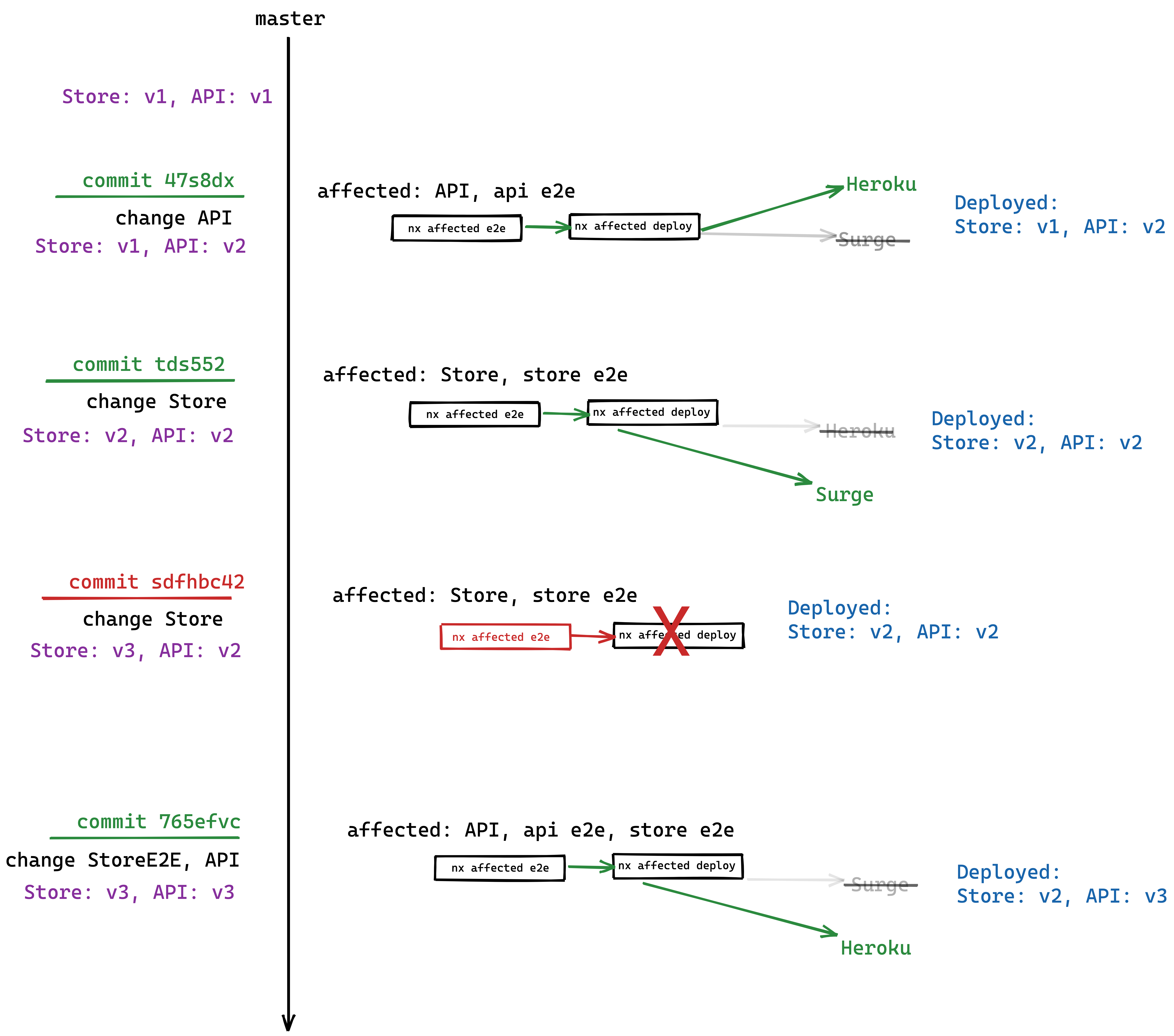Warning This action has been deprecated in favor of Nx-Set-Shas. You can find more details on functionality and ergonomics on the official repo
"Last successful commit" action
This action returns the commit hash when a given workflow was last successful.
This is especially useful when we have a workflow where we need to know what changed in on a given branch between two commits, so we can run some tasks on those changes.
Scroll down to the Background section below for more info around why this would be useful.
Inputs
branch
Required Branch to get last successful commit from.
Default: main
github_token
Required Your GitHub access token (see Usage below).
workflow_id
Required ID or filename of the workflow (e.g. deploy.yml).
Outputs
commit_hash
Hash of the last successful commit.
Example usage
name: Deploy Website
on:
push:
branches:
- main
jobs:
build:
runs-on: ubuntu-latest
name: Deploying affected apps
steps:
- uses: actions/checkout@v1
- uses: bahmutov/npm-install@v1.4.5
- uses: nrwl/last-successful-commit-action@v1
id: last_successful_commit
with:
branch: 'master'
workflow_id: 'deploy.yml'
github_token: ${{ secrets.GITHUB_TOKEN }}
- run: npm run nx affected -- --target=build --base=${{ steps.last_successful_commit.outputs.commit_hash }} --parallel --configuration=productionBackground
When using a tool like Nx, for example, it has a feature where you give it 2 commits, and it calculates which projects in your repository changed between those 2 commits. We can then run a set of tasks (like building or linting) only on those affected projects.
This makes it easy to set-up a CI system that scales really well with the continous growth of your repository, as you add more and more projects.
Problem
On a CI system that runs on submitted PRs, it's easy to determine what commits to include in the affected calculation:
everything between latest origin/master and HEAD-commit-of-my-PRs-branch.
As that includes all the changes our PR will introduce to master.
But what if we want to set up a continuous deployment system
that, as changes get pushed to master, it builds and deploys
only the affected projects?
What are the FROM and TO commits in that case?
They can't be just HEAD and HEAD~1 - as we might push a bunch
of commits into master. We want to include ALL those commits when determining
affected.
There's also the issue of failures - if a few deployments fail one after another, that means that we're accumulating a list of affected projects that are not getting deployed. Anytime we retry the deployment, we want to include every commit since the last time we deployed successfully. That way we ensure we don't accidentally skip deploying a project that has changed.
Here's an attempt at demonstrating the problem above:
